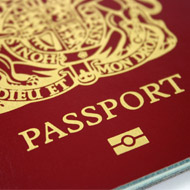BVA raises concerns over migration recommendations

Nearly half of vets registering to work in the UK every year come from the European Economic Area.
The BVA has raised concerns about how new migration recommendations will translate to the real world, especially for vets undertaking vital public health work.
The concerns follow the publication of the Migration Advisory Committee’s (MAC) report on European Economic Area (EEA) migration, which makes a series of recommendations for designing the UK’s post-Brexit system for work-based immigration.
The report recommends that EU citizens should not necessarily be preferred over non-EU migrants, on the assumption that UK immigration policy will not form part of an agreement with the EU. It also recommends scrapping the cap on the number of migrants under Tier 2, with existing salary thresholds maintained.
BVA president John Fishwick said: “We would be concerned about how some of these recommendations would play out in reality given the veterinary profession’s high dependence on the EU for workforce supply.
“Nearly half of vets registering to work in the UK every year come from the EEA, so it’s critical that any changes to migration policy are designed to maintain capacity and guard against sudden shortages rather than introducing new layers of bureaucracy such as the onerous application for licences to sponsor employees or restrictions on flexible movement between roles.”
He adds that while it makes sense to create a level playing field for the migration of skilled workers after Brexit, it could hit some parts of the sector hard if the Immigration Skills Charge is extended to the recruitment of EU workers.
“In the abattoir industry, where 95 per cent of Official Veterinarians monitoring animal welfare standards and upholding food safety in the supply chain hail from overseas, mainly from the EU, introducing a charge would be detrimental both to businesses and public health,” he said.
“We would urge for the recommendation to be reviewed ahead of implementation before it can do lasting damage in this vital area of the workforce.”



 The Animal and Plant Health Agency (APHA) has updated its online reporting service for dead wild birds.
The Animal and Plant Health Agency (APHA) has updated its online reporting service for dead wild birds.